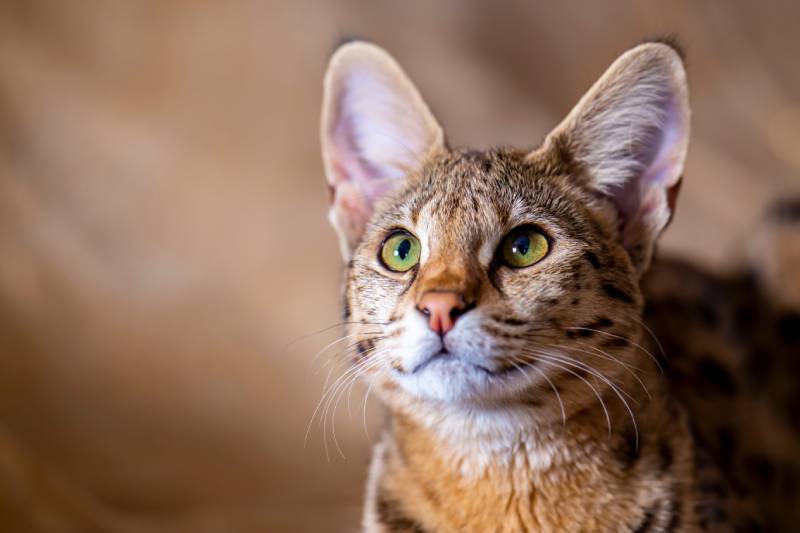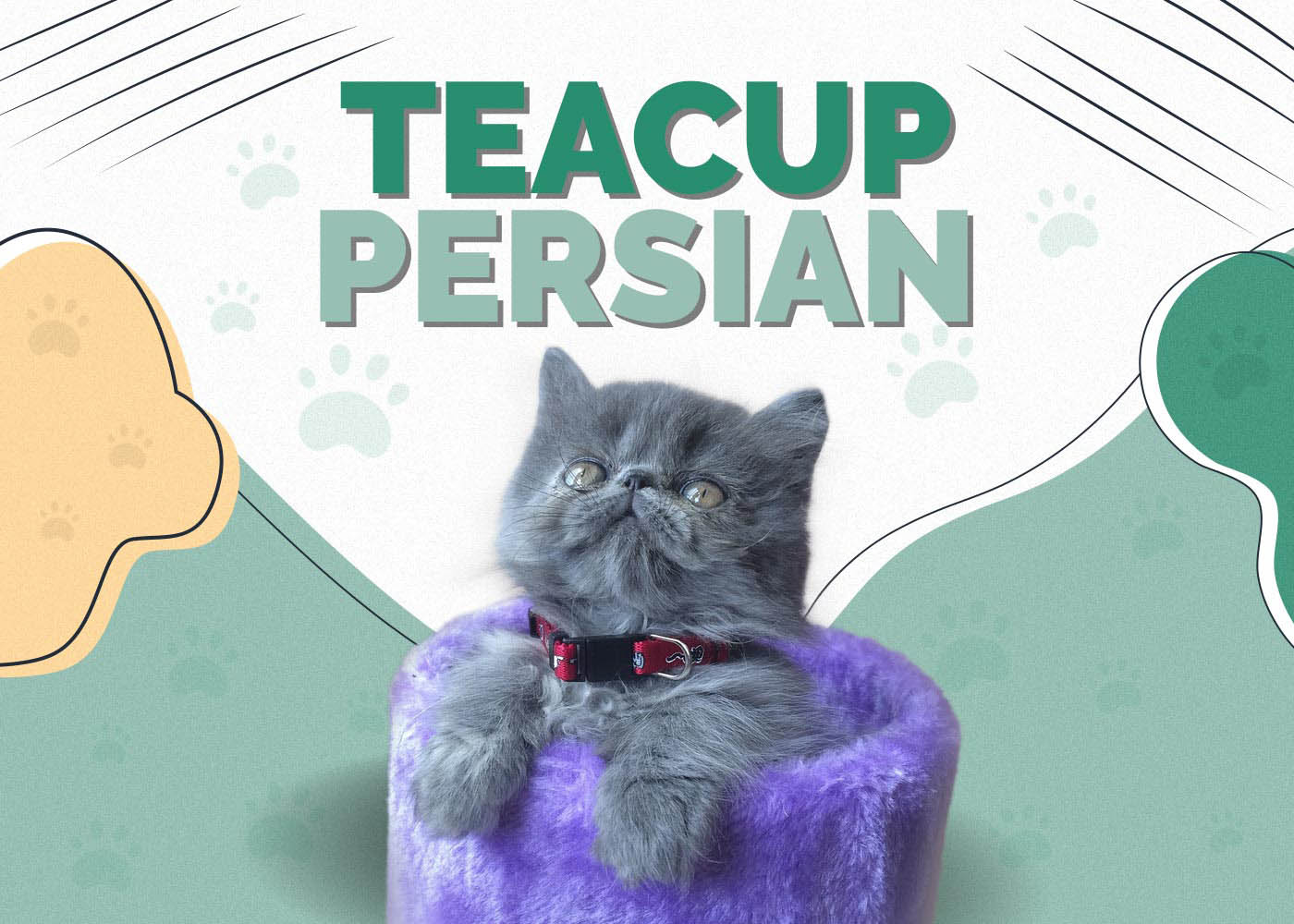Is Philodendron Toxic to Cats? Keeping Your Cat Safe!
By Ashley Bates
Updated on
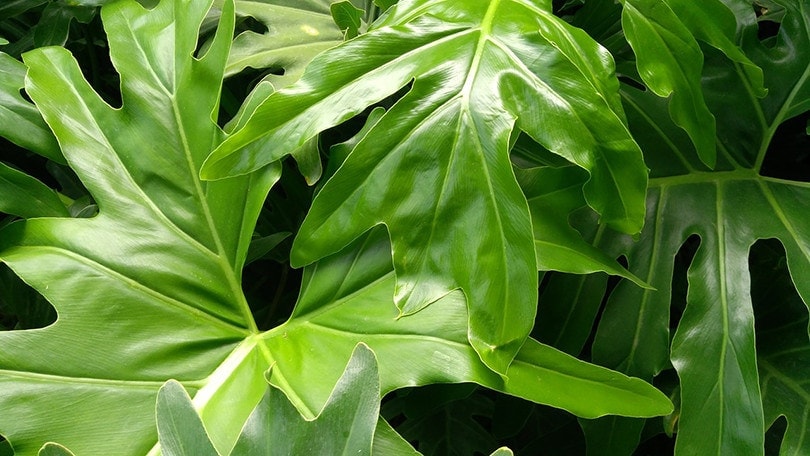
If you’re a cat owner with a green thumb, you know just how challenging it can be to have houseplants and felines in the same space. Not only can your cats wreak havoc on your plants, but some varieties can also be highly toxic and even deadly to your pets.
Philodendron is one of the most common houseplant species because they are easy to maintain, and offer a lovely aesthetic in any home setting. But is the plant safe for your kitties? Philodendron is mild to moderately toxic to cats—so caution is advised. This article will give you more details about the philodendron.
All About Philodendron
Philodendron is an instantly recognizable plant to any houseplant lover. It has beautiful heart-shaped leaves and grows in long vines. They require minimal maintenance and thrive in even questionable conditions.
Some frequently used names for philodendron include:
- Horsehead philodendron
- Fiddle-leaf
- Panda plant
- Cordatum
- Split leaf philodendron
- Fruit salad plant
- Red emerald
- Red princess
- Saddle leaf
No matter the name, according to the ASPCA, all are toxic to dogs, cats, and horses,
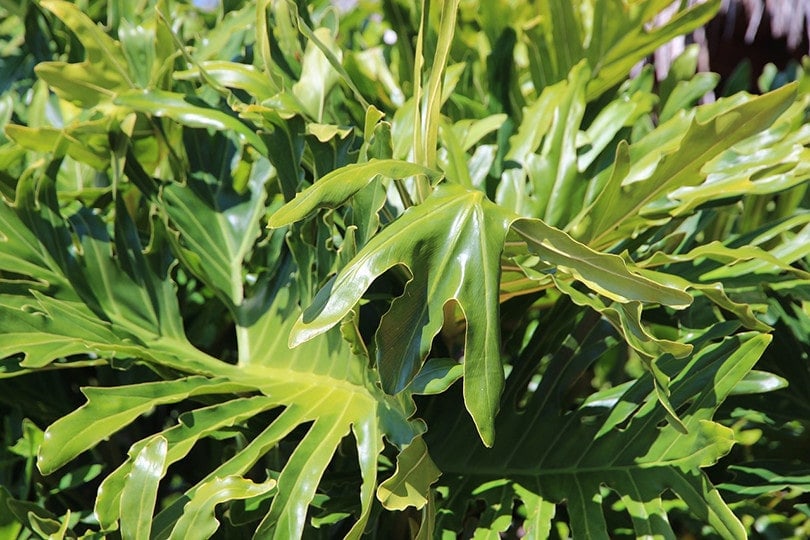
Philodendron Care
| Family: | Araceae |
| Sunlight Requirements: | Bright, indirect sunlight |
| Water: | Water when the soil is dry one inch down |
| Soil pH: | 0-6.0 |
| Fertilizer: | Needs liquid foliage fertilizer with macronutrients |
Toxicity of the Philodendron Plant
Philodendron has a mild to moderate toxicity level to dogs and cats. While most symptoms are simply unpleasant, they can cause dehydration by making mouths sore and gastrointestinal upsets, which can be dangerous.
The toxic component within the philodendron plant are insoluble calcium oxalate crystals. When they are ingested, they irritate the entire gastrointestinal tract due to their sharp needle-like shape.
Symptoms of Philodendron Poisoning
If you suspect that your cat munched on your philodendron plant, here are some warning signs to look for.
- Oral irritation
- Drooling
- Eye irritation
- Vomiting
- Difficulty swallowing
- Swelling of mouth, tongue, and lips
- Pain
It might look pretty terrible, and possibly a lot worse than it actually is when your cat eats this houseplant.
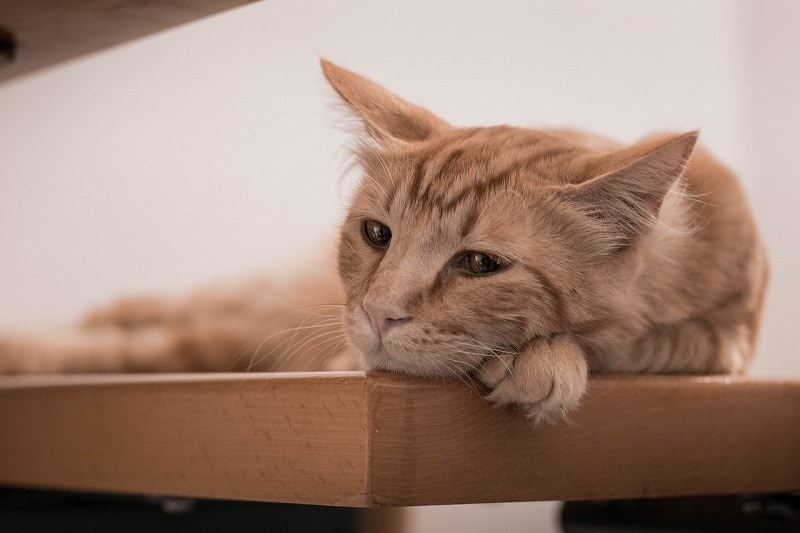
Why Do Cats Eat Houseplants?
Since cats are obligate carnivores, you might wonder what would prompt them to eat a houseplant in the first place. Generally, a cat might act disinterested in greens altogether. But more often than not, cats can attack, bite, eat, and chew houseplants.
Some reasons a cat might gnaw on your prized possessions include:
- Boredom: We all know that sometimes, all our kitties are looking for is entertainment. They might like to attack your plants because it simply gives them something to do.
- Lack of nutrients: Even in the wild, predatory cats sometimes munch on plants. It could be that they need an extra dose of fiber, vitamins, or minerals. If their bodies are lacking, they instinctively try to make up for that.
- Playfulness: Philodendrons are quite dangly most of the time, which can trigger a prey drive in your cat. These vines are the ideal target if they just want to chase and chomp.
- Taste: As strange as it sounds, your cat might just like the taste of the plants. If that’s the case, you might find them taking a sneaky bite now and then.
Tips to Keep Your Cats Safe from Toxic Houseplants
Here are a few things you can do to prevent houseplants and cats from making contact.
- Use hanging pots: Hangers for potted plants can be as aesthetically pleasing as practical for cat owners. You can buy them in all sorts of styles, and they are perfect for keeping your plants safe from sharp teeth and claws.
- Place in an enclosed room: You can designate a special room just for your plants if you have the space. It should have enough light to grow your selection comfortably. But this gives a solution to your cats getting into it without you knowing.
- Make shelves: If you can make shelves high enough to be inaccessible to your cat, you can make or buy a few to store your plants out of reach.
- Don’t own harmful houseplants: A surefire way to make your cat completely safe is to refrain from owning potentially harmful plants in the first place. As much as you love some varieties, you might have to make the tough choice to avoid them altogether.
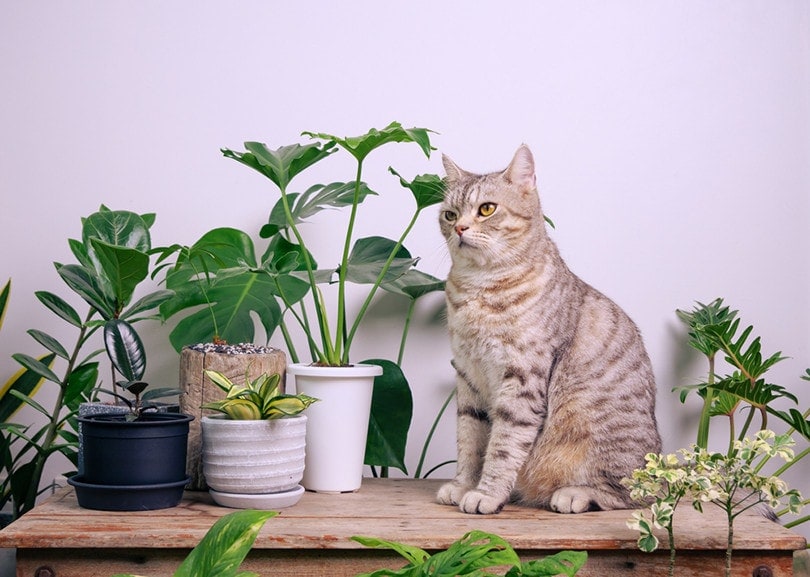
Alternatives for Cats Who Love to Eat Plants
If you have a cat who can’t get enough of your houseplants, they might benefit from cat grass. Cat grass is a self-growing alternative to rescue your pretty plants and protect your pussycats.
You can buy cat grass online on sites like Amazon and Chewy. Many come in little bags or kits to which you simply add seeds and water. Within three to five days, in most cases, little sprouts will start. Soon, your cat will have their own little patch of greens to munch on.
Offer cat grass in multiple locations throughout the home. It can significantly reduce their desire to look to your plants to alleviate boredom.
Cats + Philodendron: Final Thoughts
So, now you understand that philodendron plants are mild to moderately toxic to your dogs and cats. If you choose to have both, always make sure that the plant is completely out of reach. Thankfully, plants and pets can peacefully coexist if you put a few safety measures into place.
If your cat ingested philodendron, watch for signs of gastrointestinal distress. Seek medical attention right away if you believe your cat has had an amount that might cause extreme side effects, leading to dehydration.
See also:
- Can Cats Eat Cactus? Will They Try to Eat One?
- Are Cats Obligate Carnivores? Vet Approved Facts & Recommendations
Featured Image Credit: gracielagv, Pixabay


